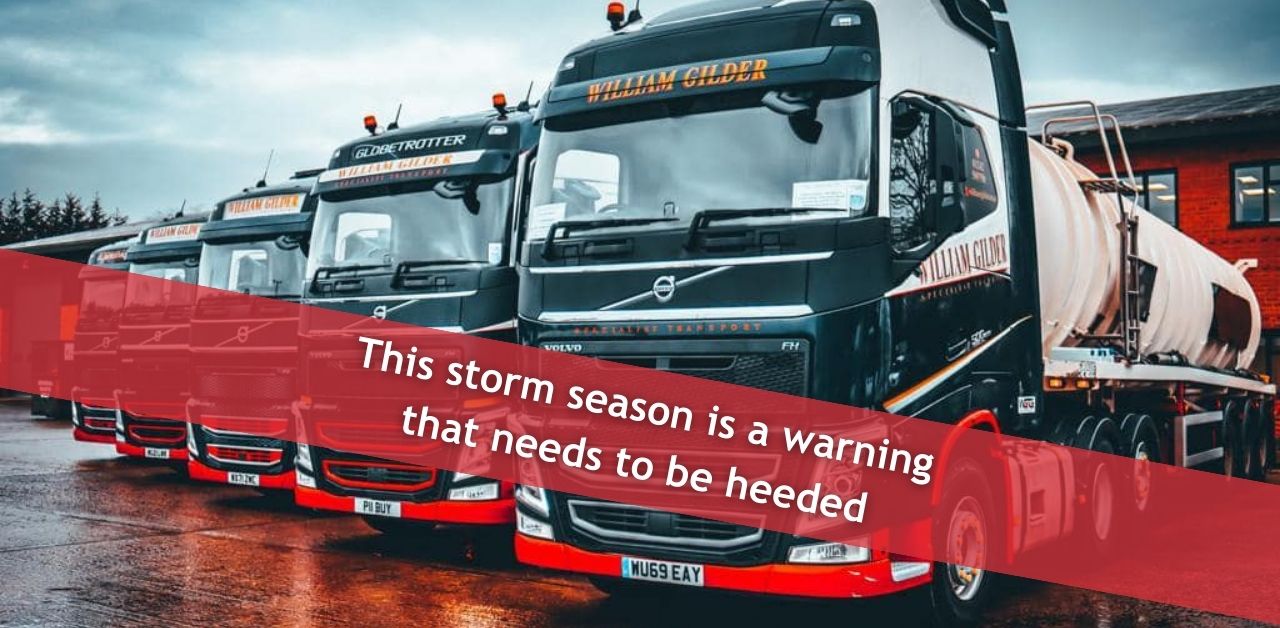As the UK cleans up in the wake of Storm Henk, and the subsequent Storms Isha and Jocelyn, questions will, once again, be asked as to why communities continue to be vulnerable. Not only has severe flooding caused extensive physical damage to businesses and homes across large swathes of the United Kingdom, but with it, comes the additional challenges posed by sewage overflows.
This is not a new problem and, as our director Mark Fowles explains, cannot go on being overlooked.
We can’t ignore the warning signs
There is no escaping the fact that our sewage network is outdated and in dire need of updating. Yet despite numerous campaigns from groups across the political spectrum, improvements are still far from being implemented. Storm Henk needs to be the final warning – as a country, we cannot afford to remain at the mercy of the elements.
One of the biggest issues, unfortunately, is that said improvements will take time. So what is the interim solution?
Getting a contingency plan in place
Assessing our national contingency plans is an ideal first step, especially when the threats posed by climate change are factored in. It is a grim reality that if the world stays on its current path, events like Storm Henk will become more common and in areas previously thought to be safe from at least the worst of the floods. In addition, there are sure to be zones within those areas that are particularly at risk, which is where greater protection may be needed.
Flooding isn’t just about rivers bursting their banks or fields becoming saturated. Overflowing septic tanks in both the commercial and domestic markets and industrial pipes becoming blocked by debris following periods of unsettled weather are already major obstacles at such times, and like with rising water levels, is only going to become more problematic. The second challenge is that these events can happen with very little warning. What will we do then?
Going back to the need to look closely at contingency and emergency planning, there is pressure on utility companies to act before the absolute worst-case scenario happens. However, the removal of liquid waste comes at a price. This is often where the stumbling block is.
The right flood defence for the right area
Some areas of the country are, naturally, more at risk of flooding than others, yet with global warming and subsequent rising river levels, the boundaries are shifting. Areas that were once thought of as being largely protected ten years ago are now facing greater threats from natural events and the right level of protection is not in place, and will not be for some time yet.
For now, investment needs to be directed towards having the right defence, for each level of flooding severity, and being able to prevent wider implications from polluted water being carried by floodwater to other regions. It is in these instances where utility companies, authorities, and service providers need to join forces. As the saying goes, prevention is greater than cure.
In the county of Gloucestershire and in particular the town of Tewkesbury, just a handful of miles from where we are based, Storm Henk caused “the worst flooding in a decade”. The after-effects of such severe flooding can be equally devasting, with polluted sewage and wastewater entering riverways and, ultimately, homes and businesses, and with concerns about such extreme flooding repeating again, MPs have demanded action for preventing damage to livelihoods in the future.
Flood protection and management in the future
If there is to be a positive outcome from Storm Henk, is it that discussions on flood prevention are being held at the top tables of decision-making. The next step is to look at the framework for enabling preventative and reactive measures to be instilled with as little delay as possible. While cost, understandably, is a key consideration, the bigger picture needs to be taken into account – a short-term expenditure on improvements that will prevent wider expenses running into the millions is surely a more efficient use of budget, especially if it contributes towards the wellbeing of local residents and their livelihoods.
At William Gilder Group for example, we are proud to have formed lasting relationships with utility companies and local authorities to provide wastewater and sewage clearance services. We have seen the after-effects of extreme weather on our infrastructure, not only as a result of Storm Henk, but the daily consequences of pressure being continuously placed on an antiquated drain system and how early intervention can prevent issues from escalating into more damaging problems.
It is almost impossible to know for certain the extent in which global warning will impact our weather patterns, which is another reason why the gaps between various suppliers and decision-makers need to be closed. Devising multiple levels of contingency is key in making residents feel assured that their livelihoods are protected, regardless of what the weather does.
But we cannot wait for another Storm Henk for that to happen.







